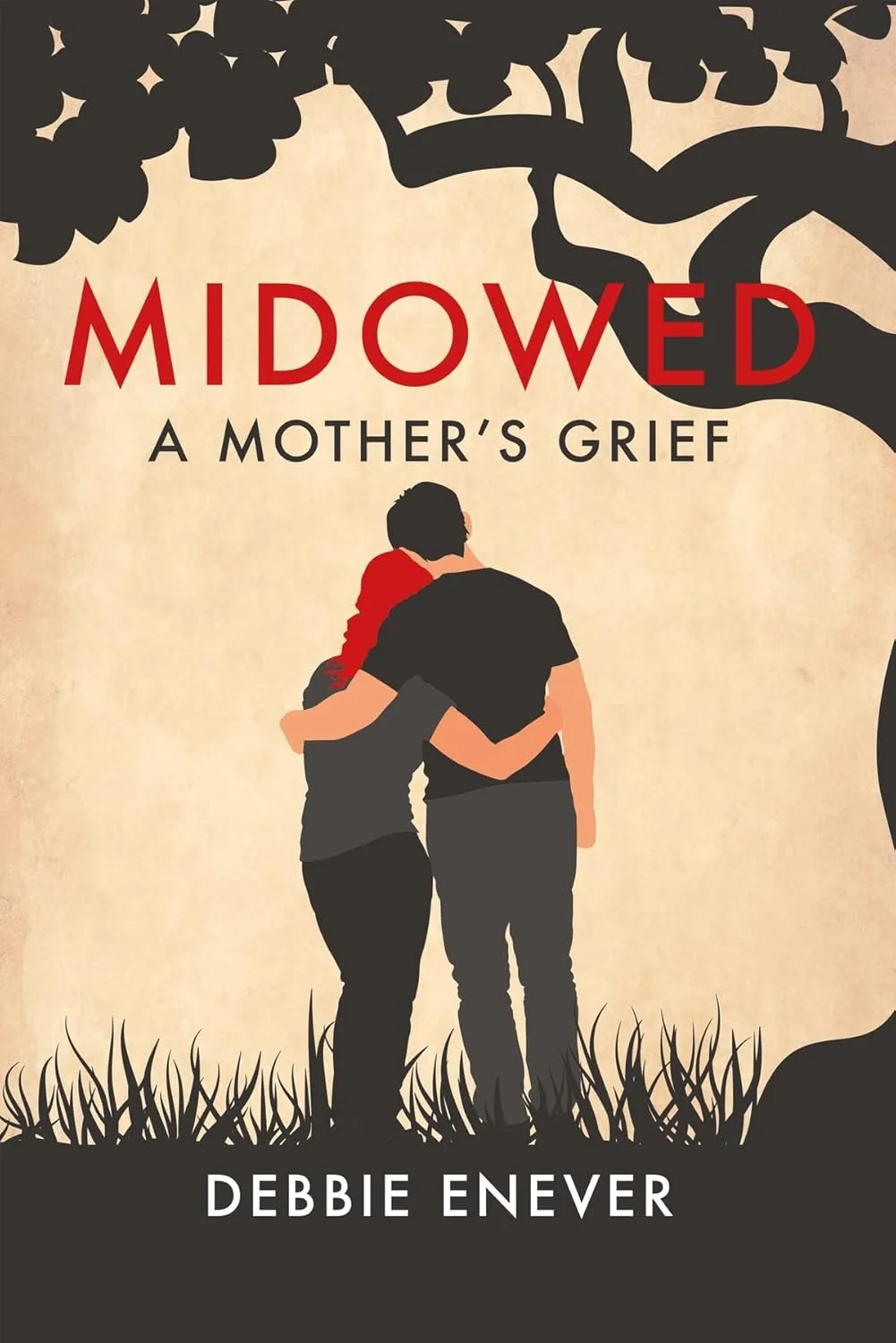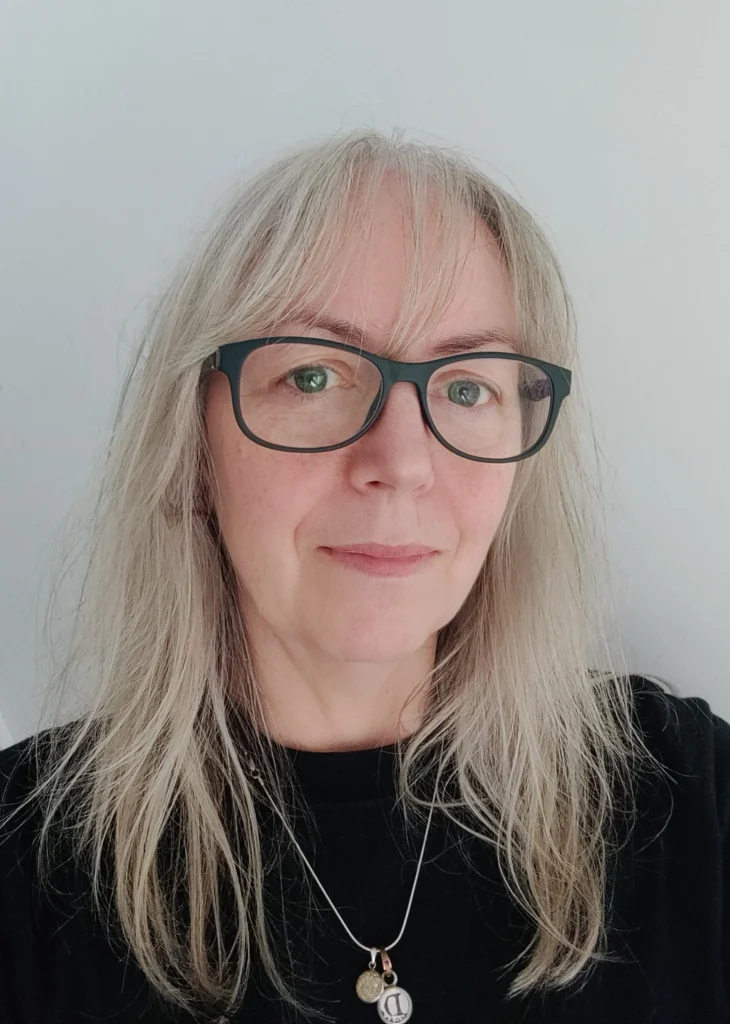
An Interview with Debbie Enever
Words By Debbie Enever, Interview by Haley Lawson
Midowed: A Mother’s Grief explores parenthood, grief, organ donation, and unexpected love—when did you know you wanted to turn your experience into a memoir? Was writing a therapeutic experience or challenging at times to be close to something so emotional?
I started journaling almost as soon as I’d returned from the hospital after Dan died. I couldn’t believe what had happened and I knew I was in danger of forgetting. As a lone parent of an only child, there was no one else to share the burden of remembering. The idea of having no record of this universe-altering period was terrifying. At that point it certainly didn’t feel therapeutic, more an act of necessity. A few months later, I wanted to create a memento of Dan’s wonderful life. Once I began writing with that intention, it became more therapeutic, spending time with my Dan memories and carefully considering how best to represent him. What I wrote became the memoir.
Your book takes advantage of two timelines: navigating the year after Dan’s death and Dan’s childhood. How did you find the balance between these two headspaces and timelines?
I wrote them separately at first. I was journaling my daily life without any editorial thought at that stage. I created a Birthday Book for Dan, completed each November. It contained a photo of him on his birthday, and notes about his favorite things and notable events—friends, books, toys, holidays, etc. It was something I’d intended to complete up to him being eighteen. Well, that wasn’t possible, but it gave me instant access to the worlds he’d inhabited each year. I turned the notes into rounded tales and deepened those with reference to my old social media posts too. It was only a year and a half after losing Dan that I properly began to look at my timeline and to revisit those dark days. I knew I needed to blend the two so the reader had time to breathe between my raw pain of immediate loss and the gentler reflections on Dan’s childhood.
Midowed brings hope into the narrative through organ donation—it definitely had me welling up at times—what more would you want readers to know about Dan’s organ donation?
Dan’s organ donation legacy continues. It gave me hope then and it still does. I’m in touch with two of the recipients. Knowing they have a positive effect on the lives of their friends and family thanks to Dan’s gifts fills me with joy. Each year in the UK, only 1 percent of people die in the kind of circumstances that permit organ donation, so it’s rare and special. I’d say please let your loved ones know your wishes so if that set of circumstances arises, they can enact your wishes with certainty, because there’ll be plenty else to think about. Every country has slightly different rules about organ donation, so it’s worth having a google to see how you can best register your intent.
In the book, you briefly explore Dan’s ADHD diagnosis. How impactful was that experience on the two of you?
Dan was such a bouncy kid! People would marvel at his energy and enthusiasm and then look at me and asked how I coped. I knew he was hyperactive, but I also knew how to manage it with good food, strong routines, lots of sleep. Outside of school, it was never really a problem, Dan was bright, lively, fun. But school was so tough for Dan. Not intellectually, but in conforming to the long periods of sitting still and doing tasks he found unstimulating. I was more resistant to him being labeled, but Dan absolutely owned who he was and wanted to find ways to make school better for himself.

Midowed was published with Zsa Zsa Publishing, an independent UK publisher. Tell us more about what your publishing journey was like.
When I’d written Midowed to a point where I thought it was a solid story, I started writing to agents, but I was mostly ghosted, with the very rare, “not right for us.” Once I’d worked my way through the entire Writers and Artists Yearbook, I booked a fifteen-minute slot with an agent via Jericho Writers. She confirmed, “the pitch is good, the writing is good, but you have no platform/celebrity and are not commercially appealing.” Writer friends advised investigating indie publishers, so I sent out letters. Really quickly Zsa Zsa came back and said they were interested. I met with them in August 2023 and Midowed was published in April 2024. From zero to super speed! Indie publishing is quick, and you develop a close relationship with every aspect of the process. What you don’t have is distribution, so getting the book onto shelves is much harder, and not something I’ve achieved yet.
You’ve recently started a podcast, Bereaved Parents’ Club, creating a space to celebrate family stories and support other grieving parents. How important is a resource like this for fellow parents?
It’s really valuable. There are many organizations for bereaved parents all with leaflets and online/face-to-face support groups. But I didn’t want leaflets and I find groups overwhelming. So, for me, a podcast is a way to share stories and information in a digital space. I wanted to give voice to everyone in “the club no one wants to belong to” and offer a way for people to find out about support they might not otherwise have known about.
What future writing projects are on your horizons?
I’m currently plotting a folk-horror novel, which will give me the chance to revel in writing the macabre. And I have another memoir in mind about growing up in the alternative 80s. That should be lots of fun to write and will allow me to revisit my memories of my parents, who are also no longer alive. A romp through my childhood and teen years awaits.
What book(s) do you want people to be aware of this coming year and why?
I can’t wait to read Kate Atkinson’s new Jackson Brodie novel for some lip-smacking literary crime satisfaction. Malcolm Gladwell’s Revenge of the Tipping Point will be a fascinating exploration of how epidemics and “viral” stories thrive in our modern world. Why Can’t I Just Enjoy Things?: A Comedian’s Guide to Autism by Pierre Novellie looks insightful too. Cathy Rentzenbrink has Ordinary Time coming out soon—I love her nonfiction and am excited to try her fiction. For any aspiring memoir writers out there, I recommend Cathy’s book Write it All Down. I wish I’d read it before I wrote mine!